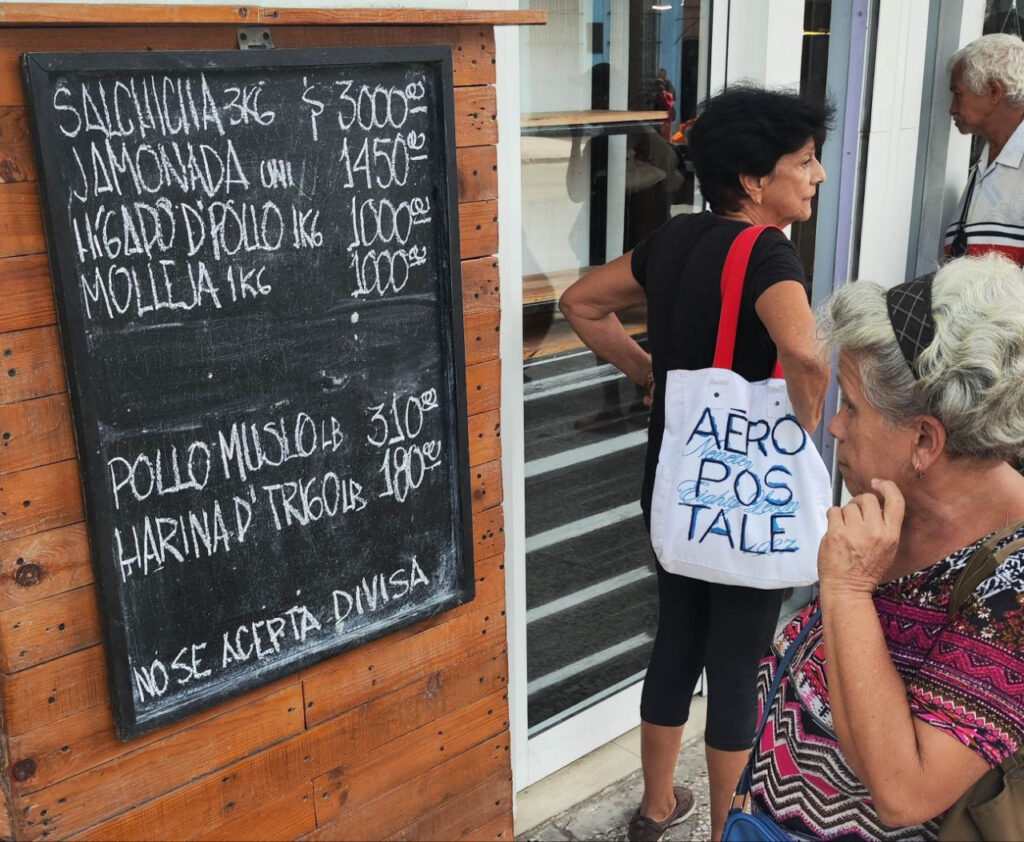The Cuban Government will update prices when necessary and may include other goods

14ymedio, Havana/Madrid, 8 July 8, 2024 — The Cuban Government has acted to exempt from tariffs the import of six basic products whose prices will be high: chicken, powdered milk, cooking oil, sausages, pasta and detergent powder. The resolution was published in the Official Gazette on Monday, July 8 — though dated Tuesday the 9th. It will go into effect “from its publication” so beginning this Monday the products should be sold at no more than the maximum price marked.
According to the table that accompanies the Resolution, the cap on the price of chicken is 680 pesos per kilo; a liter of oil (except for olive oil) should cost 990 pesos; a kilo of milk powder 1,675 pesos; pasta, 835 pesos; sausages 1,075 pesos; and detergent 630 pesos.
“In the formation of the retail prices of these products, economic actors recognize up to thirty percent (30%) of profit margin on costs and expenses, provided that they do not exceed the defined prices,” the text says. It also specified that, if at the time of the regulations go into effect, an establishment has prices lower than the maximum allowed by the State, it “does not imply or justify an increase in the prices of these products,” although there is no prohibition either.
The measure’s purpose, the document states, is to “contain the price levels of certain products of high impact on the population, through the exemption from the payment of the Customs Tax for their imports and the central establishment of maximum retail prices.” It took center stage at the end of June, when the Government wanted to cap the prices of those six products in private stores.
If at the time of entry into force an establishment has prices lower than the maximum allowed, “it does not imply or justify an increase in the prices.”
The announcement spread like wildfire on independent and local administration networks, and July 1 was given as the date of entry into force. Although nothing had been announced about the tariff exemption, it was one of the demands made by the entrepreneurs in their meeting with the authorities. The confusion meant that most of the products with allegedly capp


